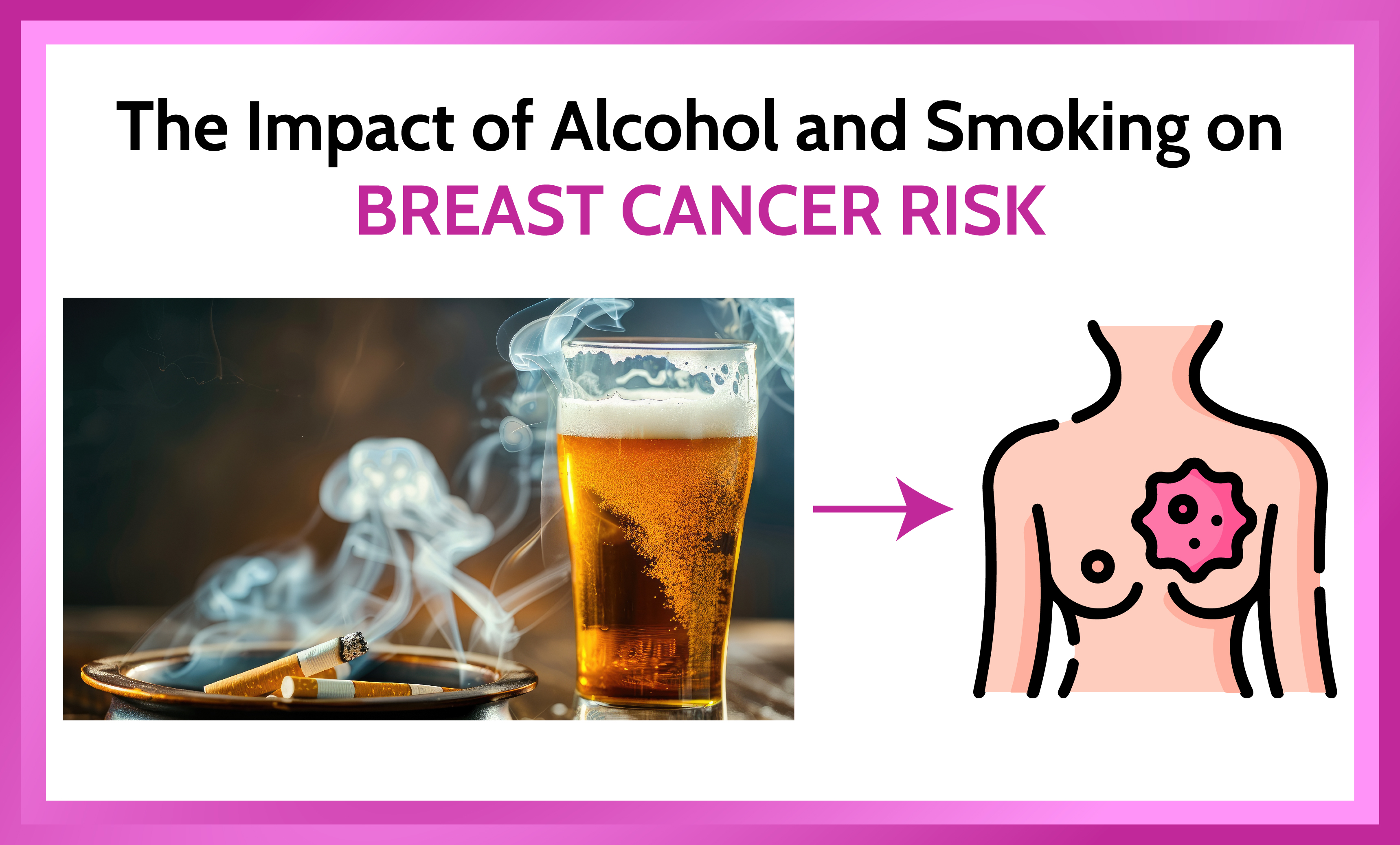The Link between Alcohol Consumption and Breast Cancer:
Alcohol is known to increase estrogen levels. A hormone associated with breast cancer growth. Women who consume alcohol regular may face a higher risk of developing breast cancer as compared to non- drinkers.
-
How Alcohol Increases Risk:
Alcohol can damage DNA in cells, leading to mutations that may develop into cancer. The body breaks down alcohol into a compound called acetaldehyde, which is toxic and can interfere with cellular repair mechanisms. Even moderate drinking- defined as one drink per day- can slightly increase the risk. The more alcohol a person consumes, the higher their risk becomes.
- Evaluate your financial situation:
Statistical Insights: According to studies cited by Dr. Mansi Shah and various cancer research organizations, women who drink three or more alcoholic beverages per week have a 15% higher risk of developing breast cancer compared to non-drinkers. Each additional drink per day may increase this risk by about 10%.
- Hormonal Impact :
Alcohol can increase the levels of certain hormones, like estrogen, which play a crucial role in the development of certain types of breast cancer. Elevated estrogen levels can stimulate the growth of hormone-receptor-positive breast cancer cells, leading to higher cancer risks.
Smoking and Breast Cancer: The Hidden Danger:
While the link between smoking and lung cancer is widely known, many are less aware of its impact on breast cancer risk. Both active smoking and exposure to secondhand smoke can increase the likelihood of developing breast cancer.
-
Chemical Exposure and Cellular Damage:
Cigarettes contain carcinogens that damage DNA and interfere with the body's ability to repair damaged cells. This damage can lead to mutations and the development of cancerous cells in the breast tissue.
- Young Women at Higher Risk:
Women who start smoking at a young age, particularly before their pregnancy, are more likely to develop breast cancer later in life. This is due to the increased susceptibility of breast tissue to carcinogens during periods of active growth and hormonal changes.
- Combined Impact of Smoking and Alcohol:
Research indicates that the combination of smoking and alcohol consumption poses an even higher risk for breast cancer than either habit alone. These substances have a synergistic effect, meaning that their combined impact is greater than the sum of their individual risks.
Dr. Mansi Shah’s Perspective on Prevention:
Dr. Mansi Shah, with years of expertise in oncology, stresses that lifestyle modifications can make a substantial difference in reducing breast cancer risk. She emphasizes that public awareness about the dangers of alcohol and smoking is crucial. According to her:
- Education and Awareness: The first step in prevention is educating people about how lifestyle choices impact their health. Schools, community groups, and healthcare providers can play an essential role in disseminating this information.
- Early Screening and Detection: Regular screenings like mammograms can help detect breast cancer early, when it is most treatable. Women should discuss their individual risk factors with their healthcare providers and adhere to recommended screening schedules.
- Limiting Alcohol Intake: Dr. Shah advises limiting alcohol consumption to reduce breast cancer risk. For those who do choose to drink, doing so in moderation is key. The Centers for Disease Control and Prevention (CDC) suggests that women should limit themselves to no more than one drink per day.
- Smoking Cessation Programs: For smokers, quitting is one of the most effective ways to lower the risk of various cancers, including breast cancer. Dr. Shah recommends seeking support through cessation programs, which can provide tools and encouragement for those trying to quit.
Practical Steps for Reducing Risk:
- Adopt a Balanced Diet: Eating a diet rich in fruits, vegetables, whole grains, and lean proteins can help maintain a healthy weight, which is also an important factor in reducing breast cancer risk.
- Exercise Regularly: Physical activity can help regulate hormone levels and improve overall health. Even moderate activities like brisk walking can lower the risk of breast cancer.
- Avoid Secondhand Smoke: Even if you don’t smoke, exposure to secondhand smoke can increase your risk. Ensuring smoke-free environments can contribute to reducing this risk.
- Moderate Alcohol Consumption: If you choose to drink, do so in moderation. Try alternating alcoholic drinks with water or opting for non-alcoholic alternatives.
Myths and Misconceptions:
There are many myths about what does and does not increase breast cancer risk. Dr. Shah emphasizes the importance of distinguishing between myths and scientific evidence. For example, while some believe that only heavy drinkers are at risk, even light to moderate alcohol consumption has been linked to an increased risk. Similarly, occasional smoking, though seemingly less harmful, still poses a threat over time.
Dr. Mansi Shah advocates for proactive health measures and public policies that support healthy lifestyles. Community outreach programs, anti-smoking campaigns, and educational workshops on the dangers of excessive alcohol consumption can all contribute to reducing breast cancer rates.
Both alcohol and smoking are significant risk factors for breast cancer. By understanding and addressing these risks, women can take proactive steps toward a healthier future. As Dr. Mansi Shah from Ahmedabad notes, prevention starts with awareness and continues with informed lifestyle choices. Limiting alcohol, avoiding smoking, and maintaining overall health through diet and exercise are key measures that can significantly reduce breast cancer risk.
